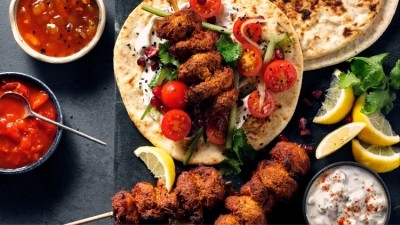News
Food and drink M&A reaches highest levels since 2016

Deal value was down 31.7% in the first quarter of 2024 compared to the same period last year, according to Oghma Partners’ latest UK F&B M&A Activity report. However, excluding the Glanbia Cheese transaction from the first quarter of 2023, deal value actually increased by 107.6%.
Just one quarter of deals had a value of more than £10m, with 4.7% of transactions worth more than £50m. There were no deals above the £100m mark during the reported period.
Inflation and high interest rates have created a difficult trading and funding environment for smaller businesses, with acquisitions out of administration accounting for 14.0% of deals in this quarter.
UK-based deals
UK corporate buyers drove most of the period’s M&A activity, accounting for 79.1% of deal volume (34 deals) compared to 60.3% for during the previous year. This was met with a reduction in the number of deals completed by financial and overseas buyers, with them accounting for 9.3% and 11.6%, respectively.
Mark Lynch, partner at Oghma Partners, said deal volume was likely to remain robust and for the value of deals to pick up gradually as market conditions improve – the start of 2024 has seen the UK economy exit recession and both consumer and business confidence have risen since last year.
“In March, the inflation rate fell to its lowest level since September 2013, food price inflation has matched this pattern, marking its 12th consecutive month of easing rates,” Lynch explained. “The Bank of England has kept interest rates steady at 5.25% since September 2023, with anticipated rate cuts in the latter half of 2024.
“The combination of these factors creates a positive outlook for M&A activity in the UK food and beverages sector, however, it might take time for deal values to pick up again to their pre-pandemic levels. In addition to this, we anticipate divestments to be a large source of M&A activity, as companies look to refine their portfolios and carve out under-performing or non-core assets.”
Stubbornly high interest rates
Oghma noted there had been a reduction in private equity deals, accounting for just 9.3% of transactions. Once again, the blame was laid at the feet of ‘stubbornly high’ interest rates that have decreased financial buyers’ ability to transact – those that have occurred have been set at lower valuation ranges.
“Private equity deals are expected to pick up when financial conditions ease,” Lynch added. “There is currently a lot of pent-up demand from financial buyers, with dry powder at record-high levels of $2.59tn globally.
“On the other hand, acquisitions made by overseas buyers may take a lot longer to return as global conflicts, supply chain issues and worldwide elections taking place this year will continue to create geopolitical and economic uncertainty.”
Meanwhile, private limited company Shallan Group has acquired 100% of the share capital of the Manchester frozen foods manufacturer Glendale Foods for an undisclosed sum.
















